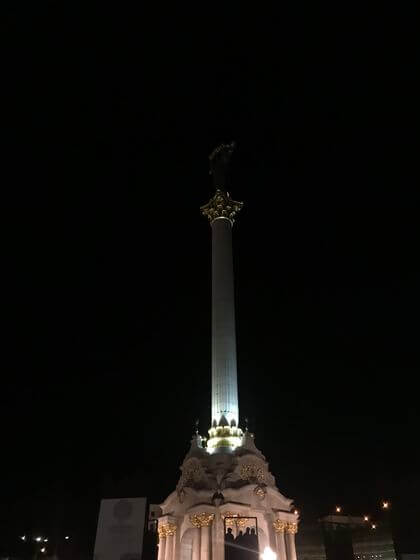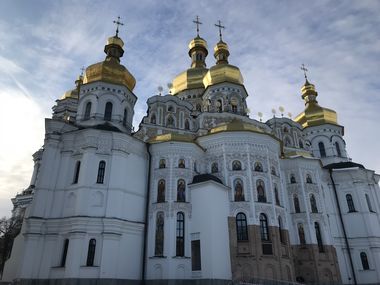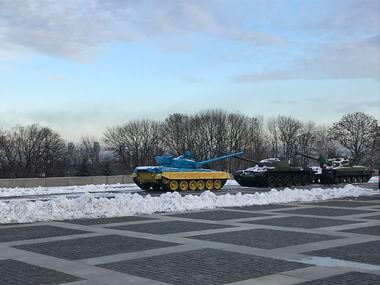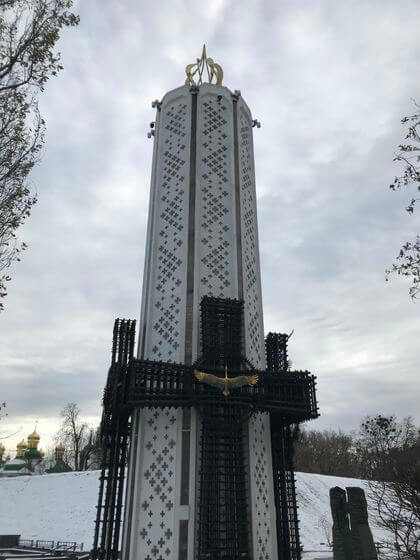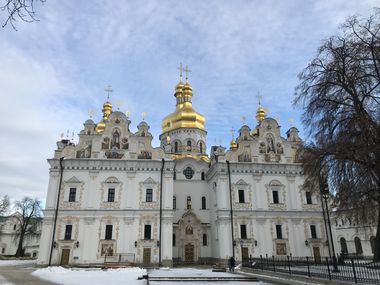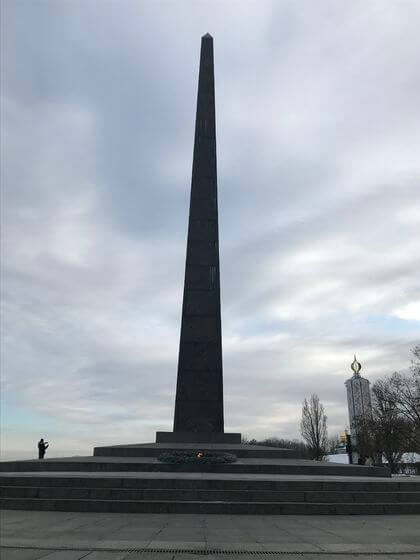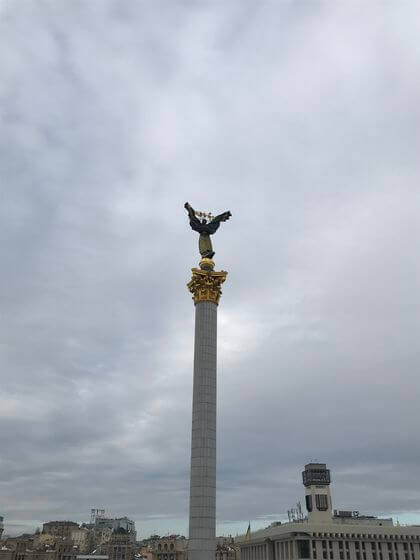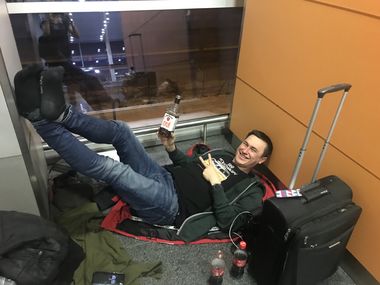Ukraine

More details
Ukraine (; Ukrainian: Україна, tr. Ukraina [ukrɐˈjinɐ]), sometimes called the Ukraine, is a sovereign state in Eastern Europe, bordered by Russia to the east and northeast, Belarus to the northwest, Poland and Slovakia to the west, Hungary, Romania, and Moldova to the southwest, and the Black Sea and Sea of Azov to the south and southeast, respectively. Ukraine is currently in territorial dispute with Russia over the Crimean Peninsula which Russia annexed in 2014 but which Ukraine and most of the international community recognise as Ukrainian. Including Crimea, Ukraine has an area of 603,628 km2 (233,062 sq mi), making it the largest country entirely within Europe and the 46th largest country in the world. It has a population of about 42.5 million, making it the 32nd most populous country in the world.
The territory of modern Ukraine has been inhabited since 32,000 BC. During the Middle Ages, the area was a key centre of East Slavic culture, with the powerful state of Kievan ...
Rus' forming the basis of Ukrainian identity. Following its fragmentation in the 13th century, the territory was contested, ruled and divided by a variety of powers, including Lithuania, Poland, the Ottoman Empire, Austria-Hungary, and Russia. A Cossack republic emerged and prospered during the 17th and 18th centuries, but its territory was eventually split between Poland and the Russian Empire, and later merged fully into Russia.
During the 20th century three periods of independence occurred. The first of these periods occurred briefly near the end of World War I and the second occurred, also briefly, during World War II. However, both of these first two earlier periods would eventually see Ukraine's territories consolidated back into a Soviet republic within the USSR. The third period of independence began in 1991, when Ukraine gained its independence from the Soviet Union in the aftermath of its dissolution at the end of the Cold War. Ukraine has fiercely maintained its independence as a sovereign state ever since. Before its independence, Ukraine was typically referred to in English as "The Ukraine", but sources since then have moved to drop "the" from the name of Ukraine in all uses.
Following its independence, Ukraine declared itself a neutral state. Nonetheless it formed a limited military partnership with the Russian Federation and other CIS countries and a partnership with NATO in 1994. In the 2000s, the government began leaning towards NATO, and a deeper cooperation with the alliance was set by the NATO-Ukraine Action Plan signed in 2002. It was later agreed that the question of joining NATO should be answered by a national referendum at some point in the future. Former President Viktor Yanukovych considered the current level of co-operation between Ukraine and NATO sufficient, and was against Ukraine joining NATO. In 2013, protests against the government of President Yanukovych broke out in downtown Kiev after the government had decided to suspend the Ukraine-European Union Association Agreement and seek closer economic ties with Russia. After this began a several-months-long wave of demonstrations and protests known as the Euromaidan, which later escalated into the 2014 Ukrainian revolution that led to the overthrow of President Yanukovych and his cabinet and the establishment of a new government. These events formed the background for the annexation of Crimea by Russia in March 2014, and the War in Donbass in April 2014. On 1 January 2016, Ukraine applied the economic part of the Deep and Comprehensive Free Trade Area with the European Union.
Ukraine has long been a global breadbasket because of its extensive, fertile farmlands and is one of the world's largest grain exporters. The diversified economy of Ukraine includes a large heavy industry sector, particularly in aerospace and industrial equipment.
Ukraine is a unitary republic under a semi-presidential system with separate powers: legislative, executive and judicial branches. Its capital and largest city is Kiev. Taking into account reserves and paramilitary personnel, Ukraine maintains the second-largest military in Europe after that of Russia. The country is home to 42.5 million people (excluding Crimea), 77.8 percent of whom are Ukrainians "by ethnicity", followed by a sizeable minority of Russians (17.3 percent) as well as Romanians/Moldovans, Belarusians, Crimean Tatars, Bulgarians and Hungarians. Ukrainian is the official language and its alphabet is Cyrillic. The dominant religion in the country is Eastern Orthodoxy, which has strongly influenced Ukrainian architecture, literature and music.
Source: wikipedia
Map
Regions 27
Flights
Nearby upcoming and completed trips
| 19.6.2016 - 30.6.2016 |

